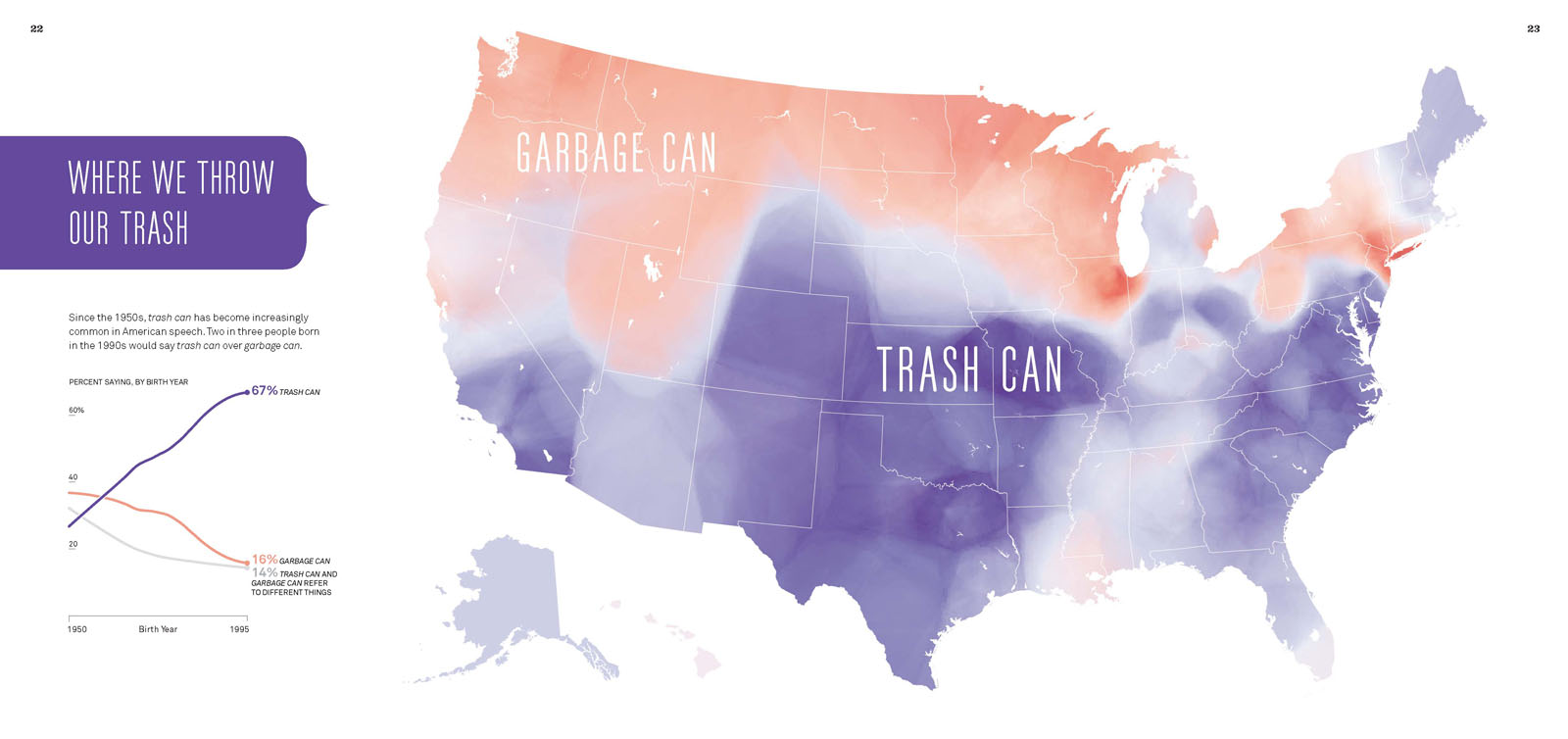
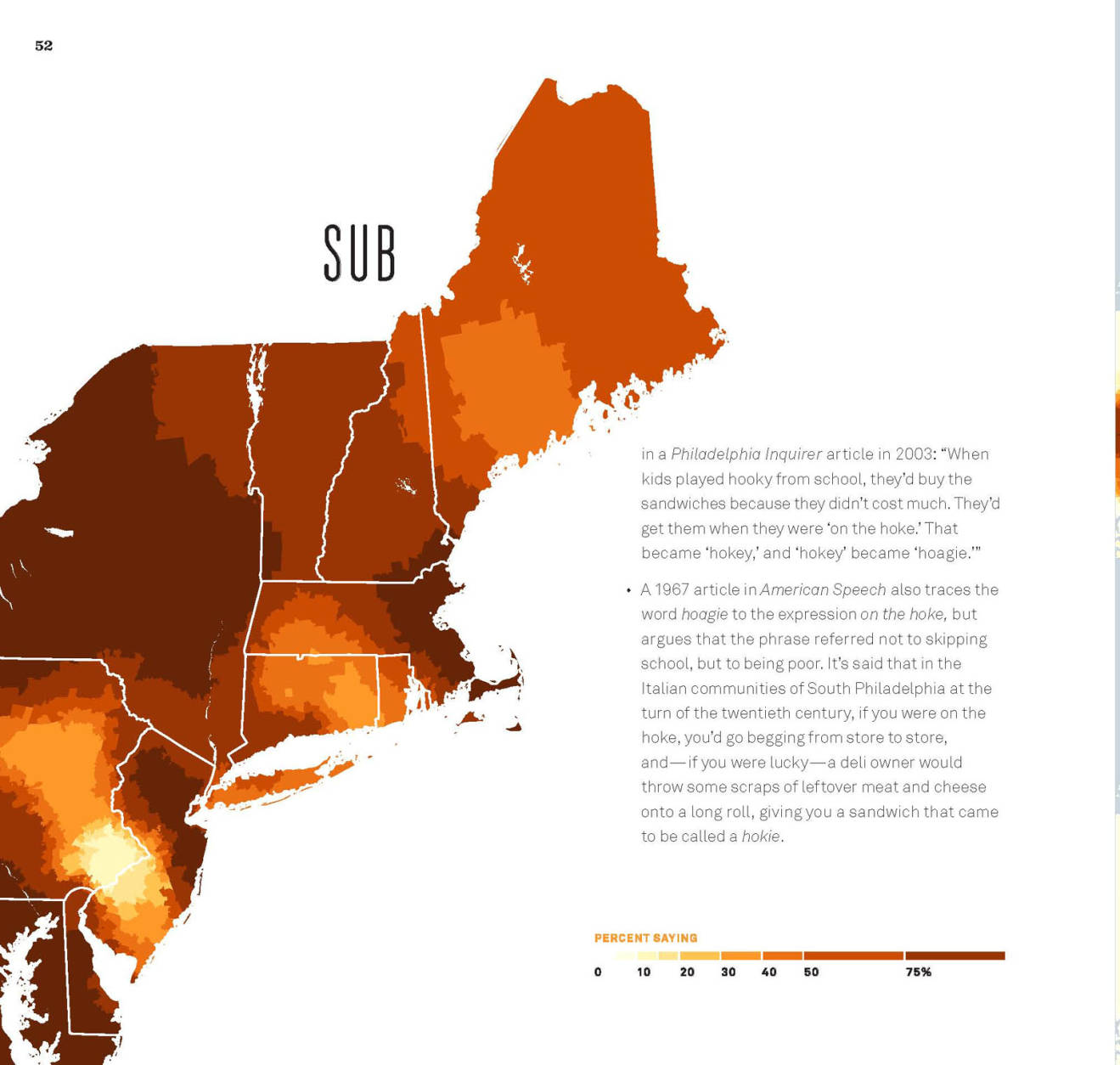
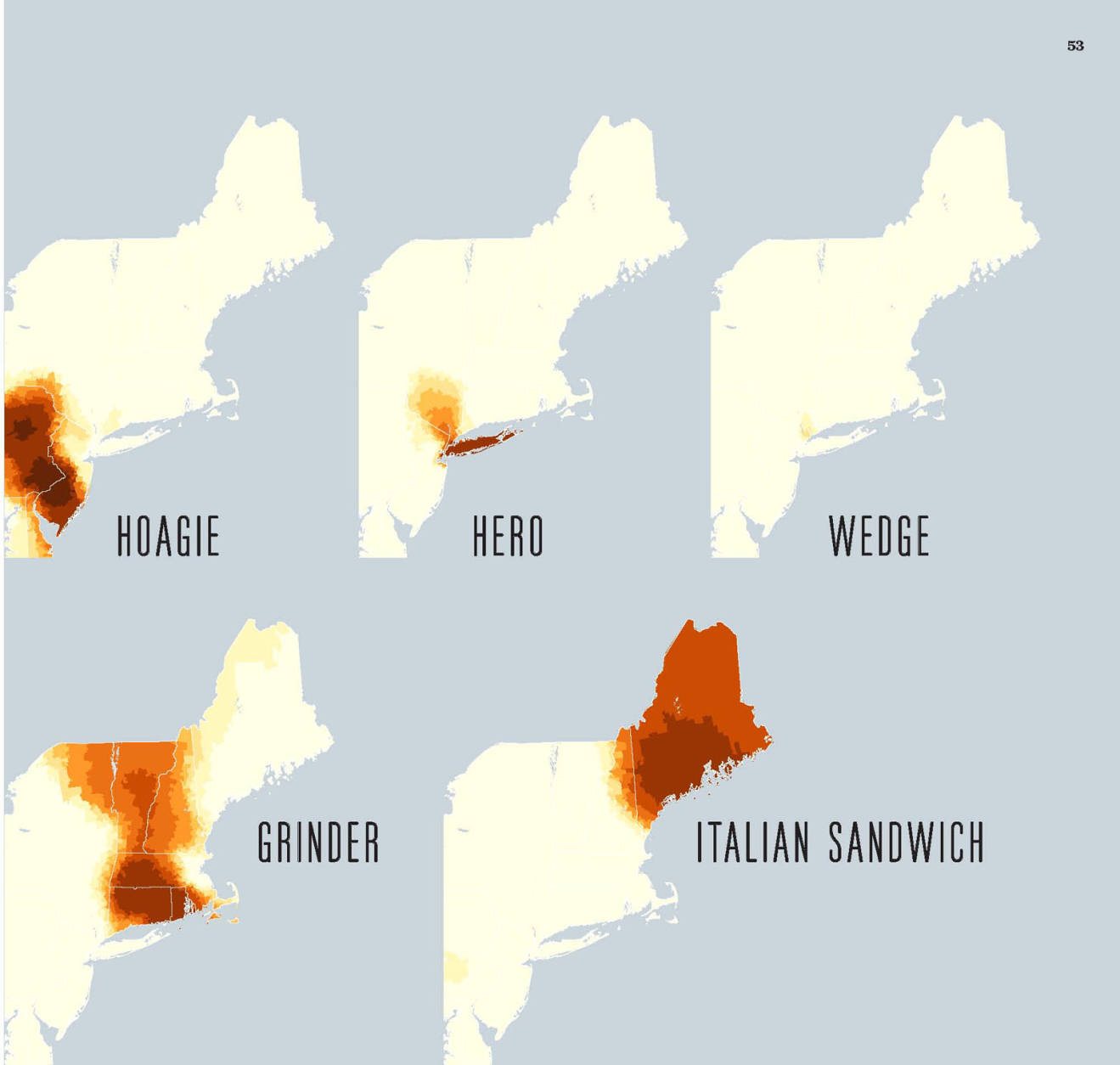
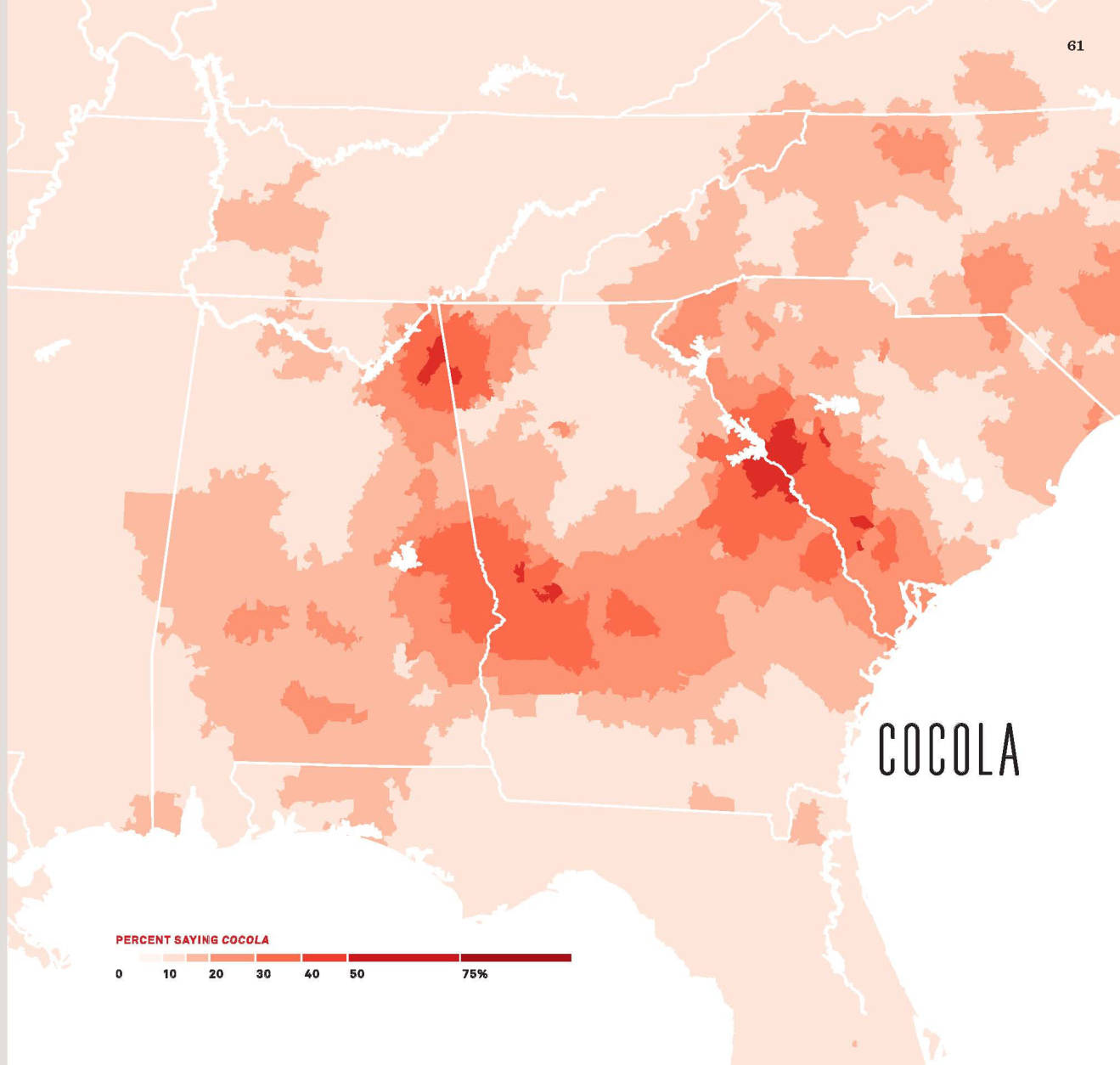
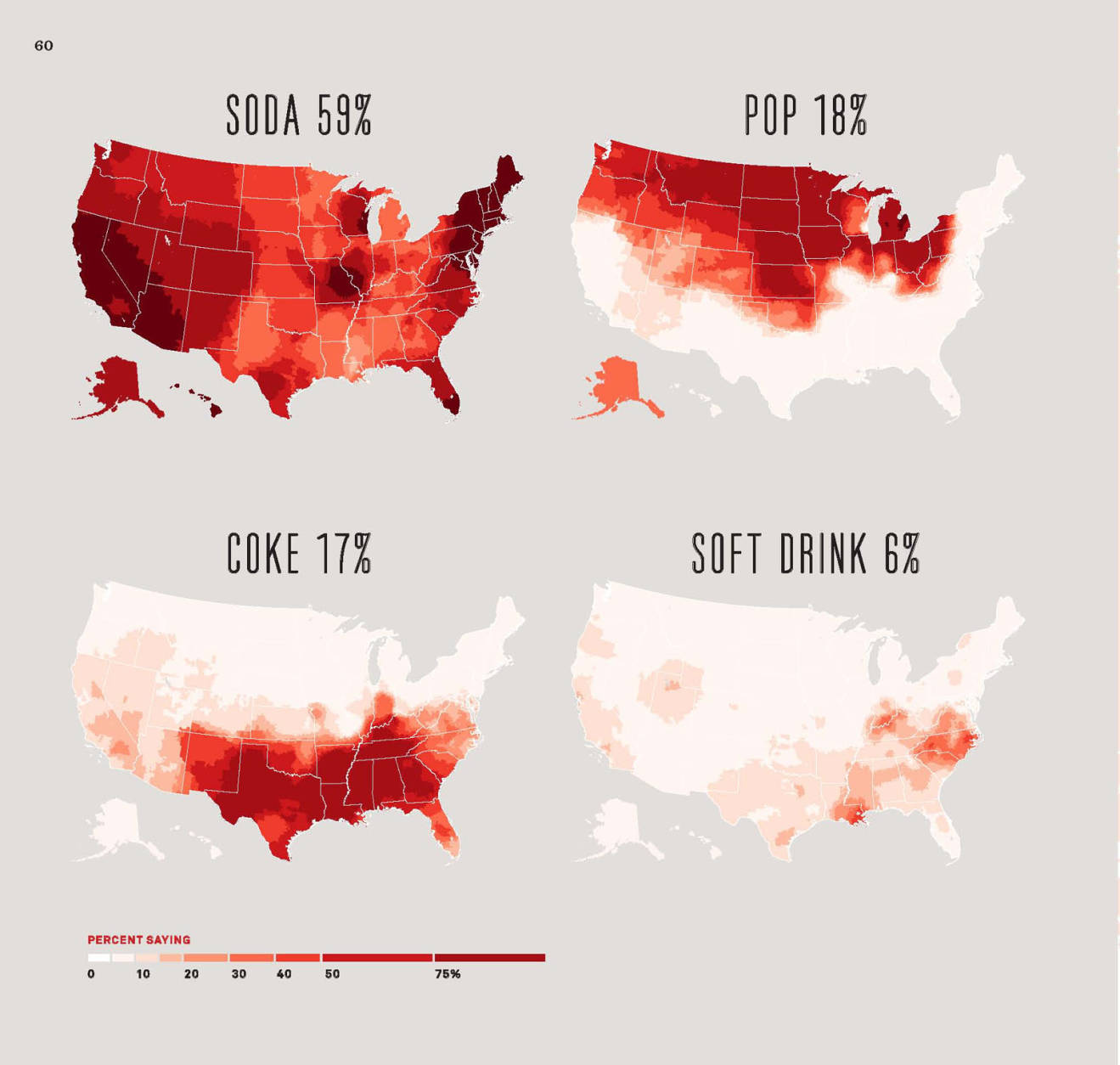
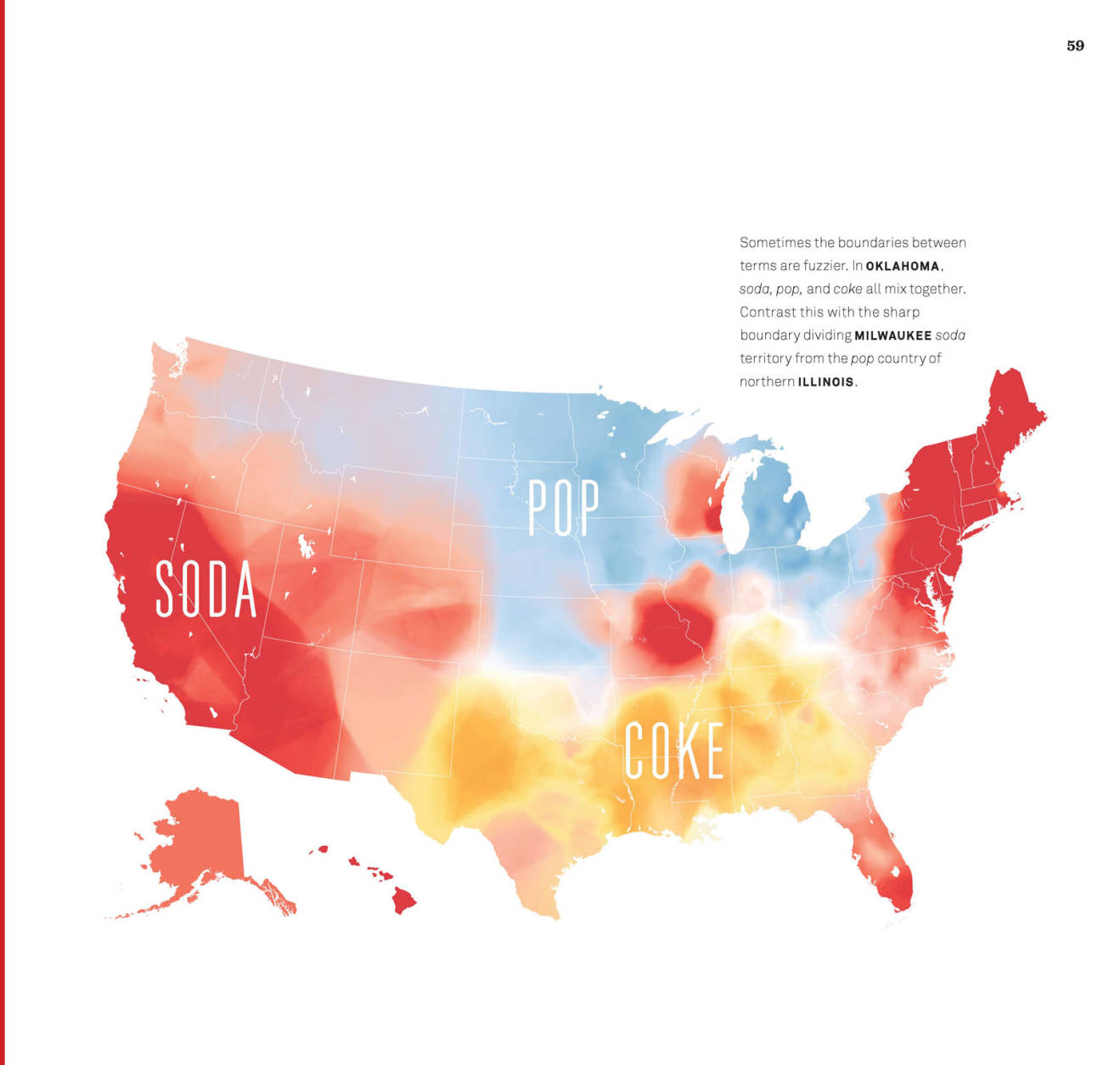
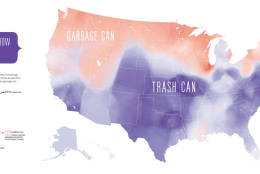
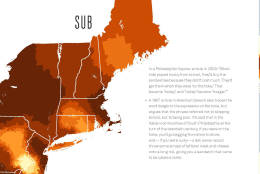
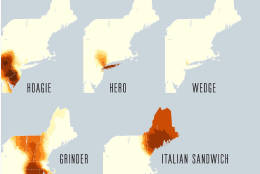
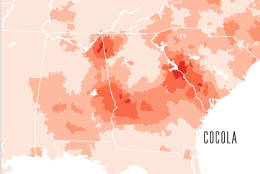
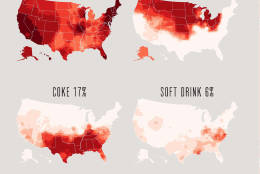
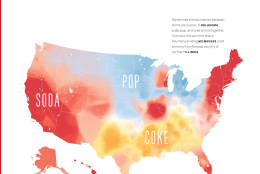
WASHINGTON — Do you wear sneakers or lace up tennis shoes?
Do you order a soda, or ask for a pop?
A new book maps the funny differences in the way people talk all across the U.S.
Author Josh Katz grew up in New Jersey, where a sandwich on a long roll is called a hoagie.
“Friends from New York would say ‘sub,’ and I remember just being fascinated by this idea of where that line was in New Jersey where hoagies became subs,” he told WTOP.
Katz, a graphics editor at The New York Times, developed a dialect quiz that the paper published a few years ago and is available online. After answering 25 questions, a map shows you where people who talk like you most likely live.
The quiz became very popular, and Katz has now turned the results into a book called “Speaking American: How Y’all, Youse, and You Guys Talk: A Visual Guide.”
“Because I’m from New Jersey, I would go down the shore, in Baltimore you’d go down the ocean. Baltimore has the front steps, whereas New York has stoops,” said Katz.
When it’s sunny and raining at the same time, Katz calls it a sunshower. That word is heard in the Northeast, parts of Minnesota and southern Florida.
“Most of the country doesn’t have a word for it at all, and then in parts of the South they call it ‘the Devil beating his wife,'” Katz said.
He was surprised to find out that the term “tennis shoes” is more common than “sneakers.”
“‘Sneakers’ is more popular in New York and to some extent in Los Angeles,” he said. “So, because you’re more likely to hear someone say ‘sneakers’ in national media, you might come away with the impression that ‘sneakers’ is the more popular term when it’s actually ‘tennis shoes’.”
In some parts of Chicago and Cincinnati, people have another word for them: gym shoes.
Katz said despite what you may have heard, these regional differences in speech are not disappearing.
“A lot of the reason why is because language is all about communication, and ultimately you are going to speak like the people that you speak with,” he said. “So growing up, that’s your friends and family, people who live close to you. And so in that way, even though you might be watching the same TV shows that someone on the other side of the country is watching, your speech patterns are going to reflect more so the people that you talk with every day,” Katz said.
It is true, however, that people who move away from their hometown often start speaking differently.
“They’ll often shed some of the speech markers associated with where they grew up and adopt the speech patterns of their new home,” Katz said.







